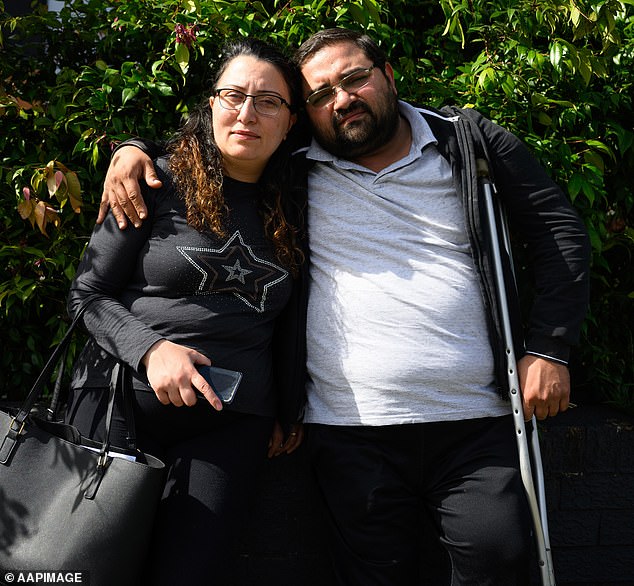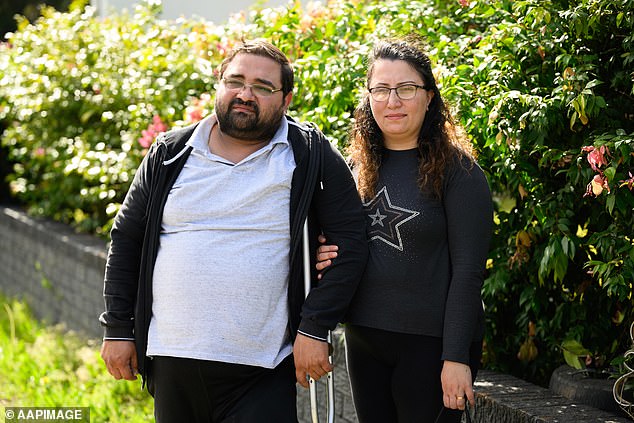We came to Australia for a better life – but a series of unfortunate events has left us with only the clothes on our backs
When Elia Norman’s second-floor apartment in Sydney caught fire after the fire spread from a neighbouring apartment, he quickly grabbed his asthmatic son and car keys and ran down the stairs to safety.
The former information systems professional watched as the flames charred his family’s prized possessions.
The emergency in Sydney last month was sparked after his neighbour’s faulty mobile phone charger blew up a power socket, sparking a small fire that eventually engulfed the entire block of eight homes.
The Normans, from the port city of Latakia, left war-torn Syria in 2018 to join the rest of their family in Australia.
The country was plunged into a civil war that has killed more than 500,000 people after a 2011 revolution turned violent and several terrorist groups, including Islamic State, emerged as leader Bashar al-Assad fought to remain in power.
“Since 2011, the economic conditions were already bad and now it is even worse: the city was regularly attacked from the rural outskirts and it was absolutely not safe,” Norman said.
“It was scary. Before, you would leave your house not knowing if you were going to come back alive or not,” said the father of two boys.
Mr Norman and his wife Noor said the fire alarms in the two-bedroom apartment in the western suburbs had recently been replaced but they did not go off when smoke came out.
The couple’s rental apartment caught fire after a neighbor’s faulty cellphone charger caused an electrical outlet to explode, engulfing the entire eight-unit block (pictured)

Noor (left) and Elia Norman (right) were left homeless a month after the fire. The couple had moved to Australia from Syria to start a new life
It was the culmination of a few tiring years since moving to Australia, but he remains optimistic and strong in his Christian faith.
‘We fled with the clothes we were wearing and thank God, I don’t know why, but luckily I have my car keys with me, so at least we’re mobile.’
He worked as a cleaner at McDonald’s fast food chain and suffered serious injuries to his leg. He underwent surgery but can still only walk with crutches.
The process of getting compensation is long and he tries to get by on a meager income from social security benefits.
The Norman family has been staying in temporary accommodation in a motel provided by Housing NSW for several weeks.
An online fundraising campaign The local church has set up a foundation to help the family rebuild their lives, and the children’s school has also contributed to uniforms and clothing.
Researchers from Western Sydney University estimate there are about 18,000 house fires nationwide, with more than 6,500 in New South Wales alone.
Maiy Azize, spokesperson for Everybody’s Home, a nationwide campaign to end Australia’s housing crisis, said tragic cases like the Normans’ were becoming more common in an increasingly tight rental market, where the vacancy rate in NSW hovers around 1.5 per cent.

The couple (pictured) and their asthmatic son escaped the fire with only the clothes they were wearing. An online fundraiser to help the family rebuild their lives has been set up by their local church
“Refugees have fewer options on the rental market because fewer people want to hire them, especially if they have no income. Therefore, they are much more likely to accept the conditions they are offered,” she said.
She indicated that the situation was due to the lack of a national tenant code and an independent supervisory body.
“There are virtually no good minimum rental standards in any part of the country,” Ms Azize said.
“If you compare housing to almost any other essential service that we know of, like a water company, an electricity company, or even a workplace… there is an independent authority in every state, but for housing there is no such thing.”
